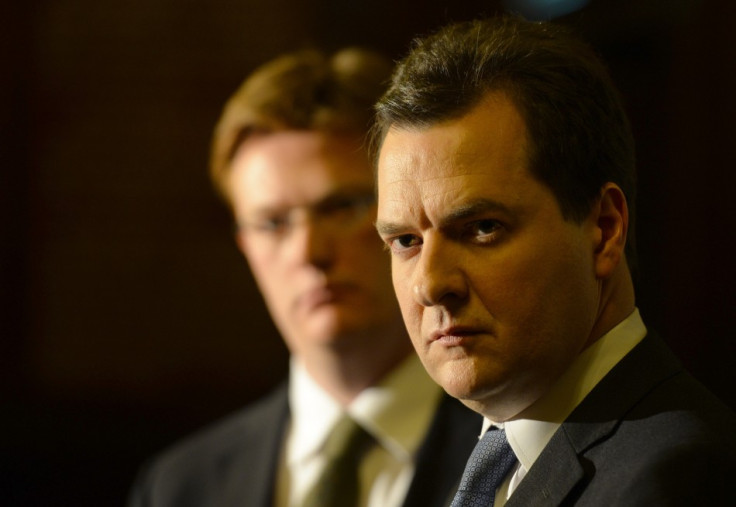UK Dodges Triple Dip Recession with 0.3% Growth [VIDEO]
Follow @shanecroucher

Britain's economy grew by 0.3 percent in the first quarter, initial GDP estimates suggest, avoiding the threat of a triple-dip recession in a political boost for beleaguered chancellor George Osborne.
The figure released by the Office for National Statistics is a preliminary estimate based on around 40 percent of the available data.
It was the UK's strident service sector that lifted the economy into positive territory, with output growing by 0.6 percent in the first three months. The service sector accounts for around three quarters of GDP.
Production industries also gave an upward nudge to GDP, rising by 0.2 percent as North Sea oil and gas output bounced back from its slump in the fourth quarter because of an extended maintenance period.
However, the construction sector woes continued at the start of 2013 as it tumbled to a 2.5 percent contraction. Manufacturing output also suffered a 0.3 percent drop.
"At this stage the snowfall and cold weather during Q1 2013 appears to have had a limited impact on GDP growth," said the ONS.
"The strongest evidence was that it reduced retail output in January and March 2013, but boosted demand for electricity and gas in February and March, which increased output in the energy supply industries."
Weak domestic output has eroded tax receipts and left the UK with an ever-expanding debt pile, which is set to rise as a portion of GDP until the 2016/17 fiscal year when it will peak at 85.6 percent.
Britain's public finances have already lost their AAA status at two of the three leading credit rating agencies, Fitch and Moody's, because of the continued weakness in the economy and global headwinds from key trading partners such as the eurozone.
In his latest bid to bring the economy back to life, Osborne announced an extension of the Funding for Lending Scheme that will see it focus on increasing the availability of credit to small businesses.
The scheme now offers significant financial incentives for banks to grow their lending to smaller firms and will last for an extra year, until 2015, in a bid to stave off the decline in business lending. Bank of England figures show that in the three months to February business lending fell £4.8bn.
Most forecasters have slashed their UK growth predictions for the coming years.
The latest to cut their forecasts is the International Monetary Fund (IMF), which chopped its 2013 growth guess to 0.7 percent. Its previous forecast was 1 percent, though before that it had been predicting 2 percent.
Because of the worsening outlook, the IMF suggested Osborne row back in the short-term on his government austerity programme else run the risk of doing more damage to the economy.
However, Osborne has already ruled out pulling any big fiscal levers. He insists the only way to revive the economy is to erase the structural deficit in public finances through fundamental fiscal reform, such as reducing the country's large welfare bill.
Critics say he should borrow more and invest to spur on growth, and then make the structural changes once the economy is healthy again.
---
Follow @shanecroucher
© Copyright IBTimes 2025. All rights reserved.






















